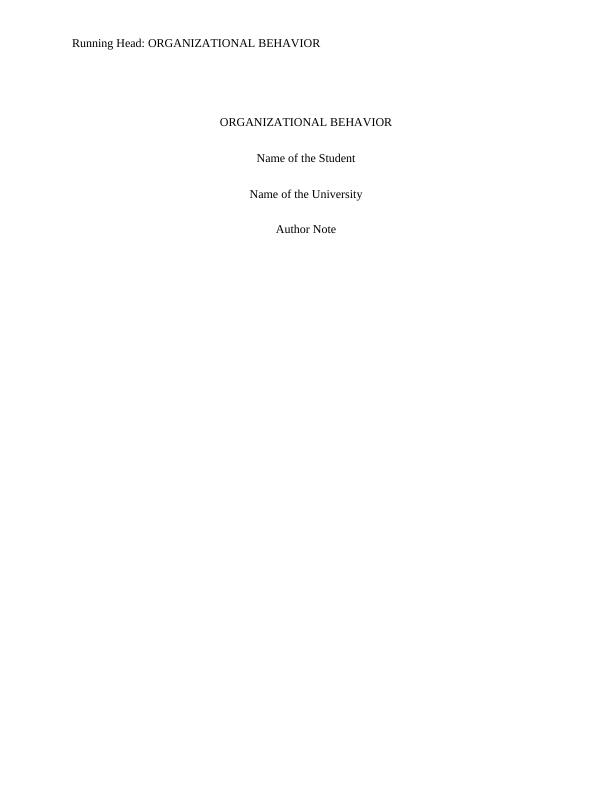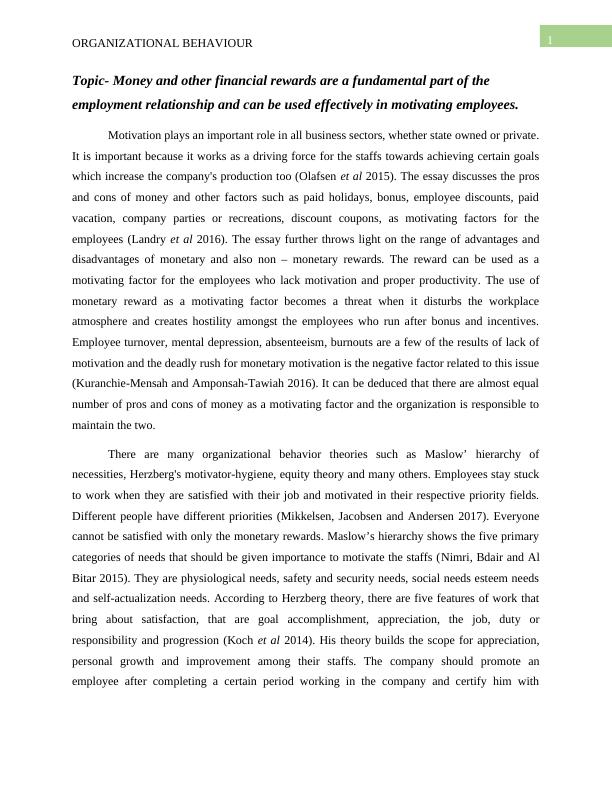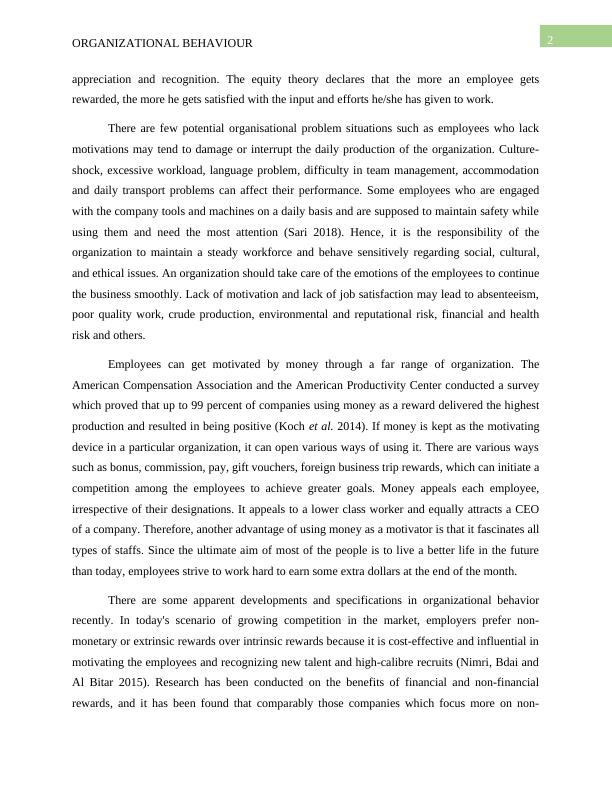Money and Other Rewards as Motivators for Employees: Pros and Cons
Develop an arguable proposition on which to write an essay on Organisational Behaviour. Use at least six peer-reviewed journals and the Harvard referencing system.
8 Pages2464 Words164 Views
Added on 2023-06-15
About This Document
This essay discusses the pros and cons of money and other factors such as paid holidays, bonus, employee discounts, paid vacation, company parties or recreations, discount coupons, as motivating factors for the employees. It also throws light on the range of advantages and disadvantages of monetary and non-monetary rewards.
Money and Other Rewards as Motivators for Employees: Pros and Cons
Develop an arguable proposition on which to write an essay on Organisational Behaviour. Use at least six peer-reviewed journals and the Harvard referencing system.
Added on 2023-06-15
ShareRelated Documents
End of preview
Want to access all the pages? Upload your documents or become a member.
Role of Monetary Rewards in Building Relationship with Employees and Motivating Them
|7
|2167
|89
Pros and Cons of Using Financial Rewards to Motivate Employees
|8
|2323
|27
Business Purposes, Customer relations in Business & Training and Employment in Business
|16
|737
|468
Organizational Behavior Management Essay 2022
|8
|2115
|14
Pros and Cons of Using Money and Financial Rewards to Motivate Employees
|7
|2094
|456
Money and Other Financial Rewards
|8
|2042
|341



